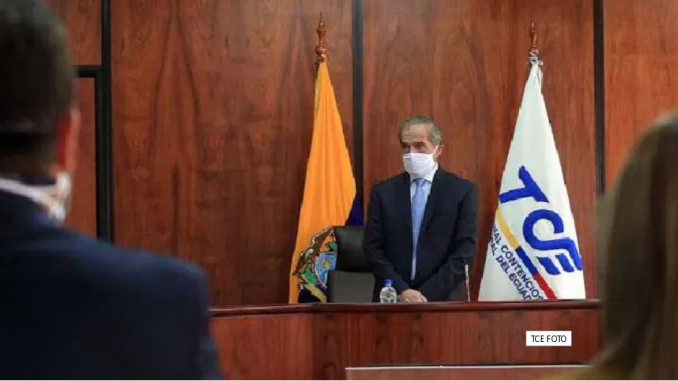
Four co-judges would help in the dispatch of cases if they were to accumulate.
To avoid the accumulation of causes that could be generated after the period of primary elections, the Contentious Electoral Tribunal (TCE) is already thinking about how to solve them.
On the way to the elections for President, 137 assembly members and five Andean parliamentarians, scheduled for February 7, 2021, political organizations must first define their representatives and that cycle concludes this Sunday, August 23.
The inconveniences could be generated by the integration of lists, the breach of requirements, among other internal disputes that the TCE must resolve.
The president of the Court, Arturo Cabrera, mentioned that subjective appeals are resolved in two instances, and that an oral hearing of arguments may be required within the process.
In general terms, the judges could take 30 days until a sentence is enforceable, but to avoid delays and accumulation of resources, they agreed to resolve them in a shorter time.
To do this, he called a contest to appoint occasional co-judges. Article 64 of the Democracy Code stipulates that, exceptionally, co-judges may be appointed when there is congestion of cases. The objective is that delays in the delivery of credentials are not repeated, as in the sectional elections of 2019.
The electoral body plans to form a bank of up to 20 eligible to designate them as joint judges. However, despite the extended deadline for submitting applications, only six folders were received.
A committee made up of academics was in charge of verifying requirements and qualifying merits. In his report, he recommended appointing four co-judges, two men and two women, to respect gender parity.
According to the schedule, this Friday, August 21, the Full Court must approve the appointment.
Ángel Torres, judge of the TCE, added that another phase in which agglomeration can be registered is in the registration, qualification of candidacies and scrutiny (by counting the votes in the first and second round, if this is necessary).
Six months before the elections, the number of organizations that will participate has not yet been defined.
Last Friday, the Plenary of the TCE, with four votes in favor and one vote saved, lifted the suspension of the movements Social Justice, Podemos, Fuerza Compromiso Social (correísmo) and Libertad es Pueblo, ordered by the National Electoral Council (CNE) on July 19, hosting a Comptroller’s exam. But with this decision, it will be up to the CNE to decide whether or not to cancel the organizations.
Another field that generates uncertainty in the TCE is the economic one, since the budget they will have for the 2021 elections has not yet been defined. The same happens with the National Electoral Council.

Be the first to comment